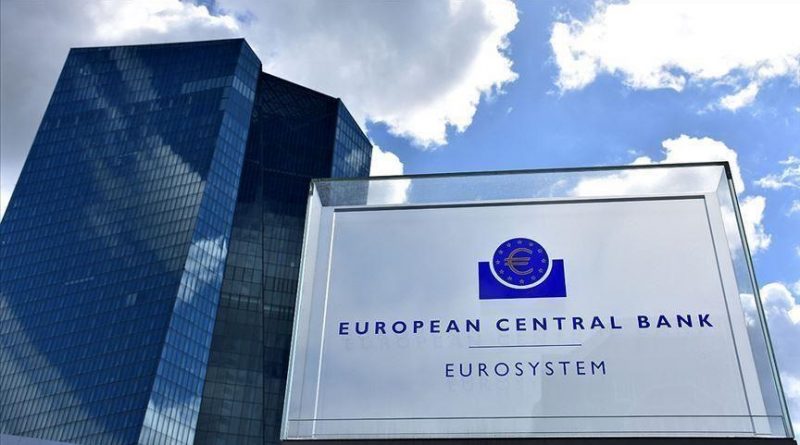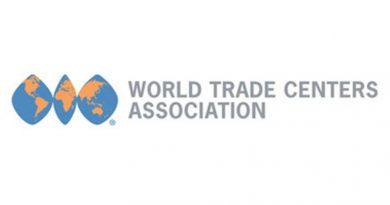Inflation War – ECB raises interest rate to a record 4%
In order to combat inflation, the European Central Bank stated on Thursday that it will be raising its main interest rate for the tenth time in a row. Rate increases have brought the primary deposit facility of the central bank from -0.5% in June 2022 to a record 4%. The freshly released staff macroeconomic estimates for the euro area, which predict inflation will average 5.6% this year, up from the previous forecast of 5.4%, and 3.2% next year, down from the previous projection of 3%, appeared to be a major factor in the increase on Thursday.
The carefully monitored medium-term projection was shifted from 2.2% to 2.1%, though. It also mentioned that future hikes might not be on the table for the time being in a market-moving remark.
“Based on its current assessment, the Governing Council considers that the key ECB interest rates have reached levels that, maintained for a sufficiently long duration, will make a substantial contribution to the timely return of inflation to the target,” the statement read.
The key ECB interest rates will be set at appropriately restrictive levels for as long as necessary thanks to the Governing Council’s upcoming decisions.
Following the statement, the euro dropped significantly and was at a three-month low, down 0.5% against the dollar at $1.0686 at 3 p.m. Frankfurt time. However, after cautious morning trade, European stocks rose, with the benchmark Stoxx 600 index rising 1.1%. The interest rates on the ECB’s main refinancing operations and marginal lending facility have both increased by 25 basis points as a result of its announcement on Thursday, to 4.5% and 4.75%, respectively. Additionally, staff revised their forecasts for the euro area’s economic growth downward, from 0.9% to 0.7% expansion in 2023, from 1.5% to 1% in 2024, and from 1.6% to 1.5% in 2025.
Analysts and economists disagreed on whether Frankfurt’s doves or hawks will prevail at this meeting in September, despite the fact that the ECB has consistently signalled its upcoming actions in previous meetings. Through Thursday morning, the financial markets projected a roughly 63% chance of an increase, up from a recent more even distribution. Along with indications of wage increases, news on the oil market that predict a tighter supply and higher prices for the remainder of the year and beyond have fanned inflation fears.
Market bets on a rate hike looked to rise after a Reuters piece on Wednesday stated that the ECB now anticipates euro zone inflation to continue over 3% in 2024. The information was provided by a source before the estimate was made public on Thursday.
In the press conference that followed the announcement, ECB President Christine Lagarde told CNBC’s Annette Weisbach that “some [Governing Council] members did not draw the same conclusion” and that “some governors would have preferred to pause and reserve future decisions once more certainty, more intelligence, would have resulted from the passing of time and the impact of our many previous decisions.” But I can assure you that a clear majority of the governors supported the choice we made. Since the Governing Council is still data-dependent, Lagarde said it was impossible to say definitively whether rate hikes were over. However, she emphasised that the ECB’s current thinking was encapsulated in the statement about rates making a “substantial contribution” to the fight against inflation if they remained at current levels.
Germany’s decline In August, the bloc’s overall consumer price inflation rate was 5.3%; this is the same as core inflation, which excludes expenditures for food and energy. The biggest economy in Europe has continued to deteriorate, with services now falling alongside manufacturing as business sentiment falls. The euro zone’s overall business activity declined in August to its lowest level since November 2020, and Germany is expected to be the only major European economy to decrease this year. According to Peter Schaffrik, chief European macro analyst at RBC Capital Markets, the market’s attention will be more on the wording used by the central bank in its statement than the actual rate hike.
The inflation forecast for 2025, which was reduced downward unlike the forecasts for 2023 and 2024, will be one area of concern, according to Schaffrik, since this is what the ECB usually means when it talks about the medium term. Another will be on its description of rates remaining constant for a “sufficiently long duration,” indicating the “path forward is flat for quite some time,” the economist said.




